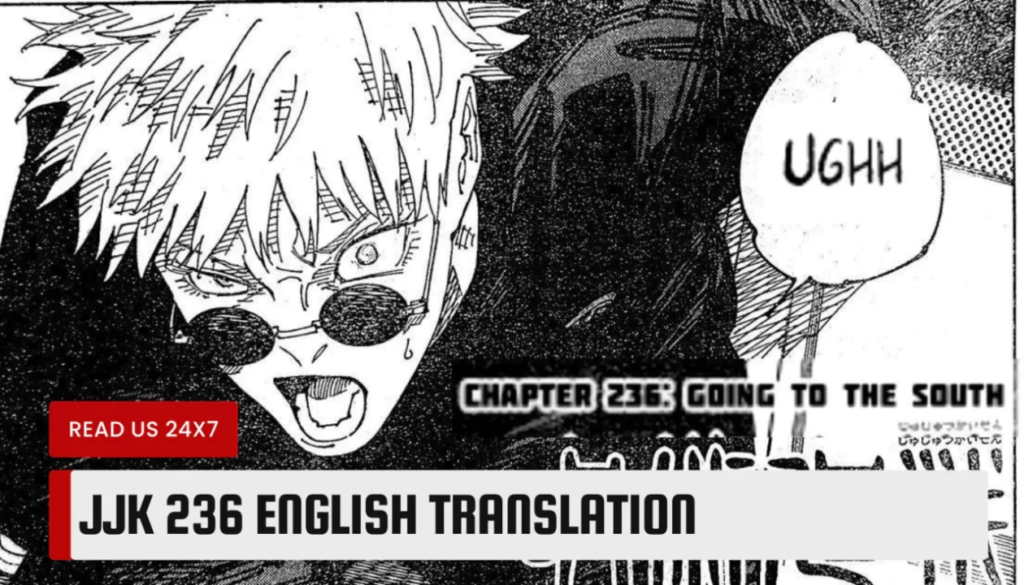Jujutsu Kaisen, created by Gege Akutami, has captured the hearts of millions with its intricate plot, dynamic characters, and stunning artwork. JJK 236 English Translation of this beloved manga is no exception, as it delves deeper into the mysteries of the Jujutsu world. However, for non-Japanese readers, understanding the nuances and hidden meanings within the text can be a challenge. In this article, we’ll embark on a journey to decode Jujutsu Kaisen Chapter 236, exploring the significance of its English translation and unraveling the mysteries concealed within the words.
Understanding the Translation Process
Before we dive into the analysis of Chapter 236, it’s essential to grasp the complexities of translating manga from Japanese to English. Translators face the daunting task of not only conveying the literal meaning of the dialogue but also capturing the nuances, cultural references, and wordplay inherent in the original text. Additionally, certain phrases or expressions may lack direct equivalents in English, requiring translators to make creative decisions to preserve the intended message while ensuring readability for an English-speaking audience.
Key Characters and Plot Points
Chapter 236 of Jujutsu Kaisen continues the gripping narrative, focusing on pivotal characters and advancing the plot in significant ways. Yuji Itadori, the series protagonist, grapples with his inner turmoil while confronting formidable adversaries in his quest to protect his friends and the world from the curses that threaten it. Meanwhile, his allies, including Megumi Fushiguro and Nobara Kugisaki, face their own challenges as they navigate the treacherous landscape of the Jujutsu world.
Analyzing Dialogue and Subtext
One of the most intriguing aspects of Jujutsu Kaisen Chapter 236 lies in its dialogue, which serves as a window into the characters’ thoughts, emotions, and motivations. Through careful analysis of the English translation, we can uncover hidden layers of meaning and gain deeper insights into the story’s themes and symbolism. For example, subtle changes in tone or phrasing can reveal nuances of character relationships or foreshadow future developments in the plot.
Exploring Cultural References
Like many manga series, Jujutsu Kaisen is steeped in Japanese culture, mythology, and folklore. As such, the English translation of Chapter 236 must navigate the delicate balance of preserving these cultural references while making them accessible to an international audience. From references to traditional Japanese rituals to nods to contemporary pop culture, understanding these cultural elements enriches the reading experience and provides valuable context for interpreting the story.
Deciphering Wordplay and Puns
Gege Akutami’s writing often incorporates wordplay, puns, and clever linguistic devices that add depth and humor to the narrative. However, translating these linguistic nuances into English presents unique challenges, as certain puns or double entendres may not carry over directly. Nevertheless, skilled translators adeptly navigate these linguistic hurdles, employing creative solutions to retain the spirit of the original text while ensuring clarity and coherence in English.
Conclusion
JJK 236 English Translation offers a captivating glimpse into the intricate world crafted by Gege Akutami. Through the lens of translation, we can unlock the mysteries hidden within the dialogue, explore the rich tapestry of cultural references, and appreciate the artistry of the author’s language. As fans eagerly await the next installment of this thrilling manga series, the English translation serves as a bridge that connects readers around the world, allowing them to immerse themselves fully in the world of Jujutsu Kaisen.







